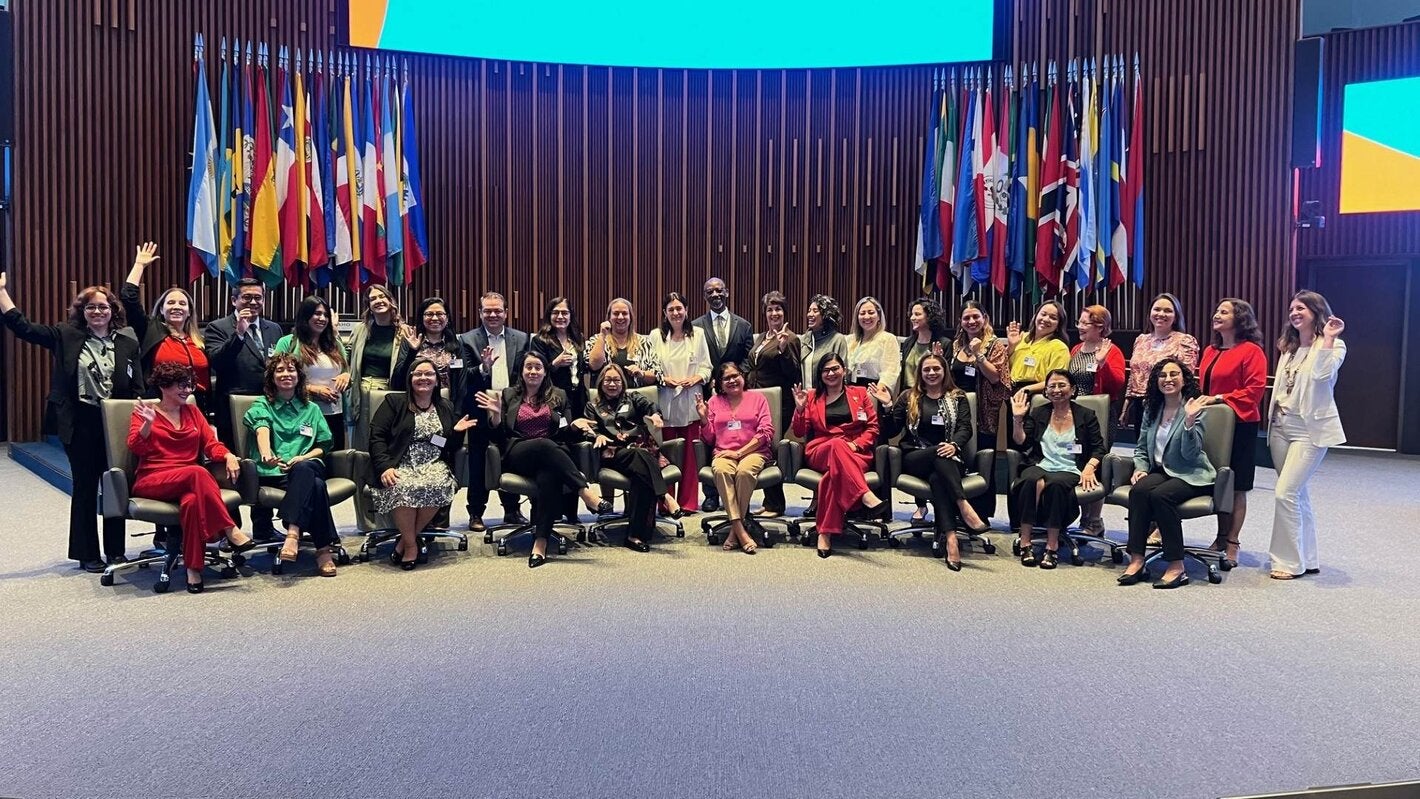
Washington D.C., August 29, 2024 – The Pan American Health Organization (PAHO) and focal points from 16 Ministries of Health in Latin America met to present the countries' progress in strengthening health systems in response to violence against women. The participating countries were Argentina, Brazil, Chile, Colombia, Costa Rica, Cuba, Ecuador, El Salvador, Guatemala, Honduras, Mexico, Panama, Paraguay, Peru, Dominican Republic and Uruguay.
The three-day meeting was held with the support of the Spanish Agency for International Development Cooperation (AECID), and was part of the PAHO Strategy and Plan of Action on Strengthening the Health System to Address Violence against Women, for the period 2015-2025. The Strategy underlines the fundamental role of the health system in responding to violence.
"This meeting represents an important milestone in our collaboration with AECID, aimed at strengthening access to health systems for survivors of violence against women in Latin America. With the support of Spain, PAHO has worked to promote a set of innovative tools to improve health system protocols, improve the training available to health personnel, and strengthen administrative health data on violence against women," said Rhonda Sealey-Thomas, PAHO Assistant Director.
During the meeting, different panels were held, covering everything from reviewing policies and updating clinical protocols to strengthening information systems and multisectoral strategies. There were also group work sessions to identify opportunities for improvement and define concrete actions.
Ambassador Carmen Montón, Permanent Observer of Spain to the Organization of American States (OAS), who participated in the opening session, emphasized the importance of early detection from health services. "The magnitude of violence against women and the impact it has on their health (as well as that of their children) justifies the need to incorporate simple tools that can be used routinely in health services in order to contribute to such early detection," she added.
Participants from the countries identified a series of concrete actions and tools necessary to promote access to health systems for women and girls in all their diversity. The exchange of experiences is essential to promote dialogue and collaboration among Member States, which allows for the identification of best practices and the adaptation of the most effective strategies to local contexts.
"The participation of the countries in this meeting is essential to advance in the final stretch of the implementation of this strategy since progress, lessons learned, and challenges were shared, enriching collective knowledge and strengthening the response of the health sector to violence against women," added Rhonda Sealey-Thomas.
For more information and updates on the meeting, visit the PAHO website dedicated to the meeting.



